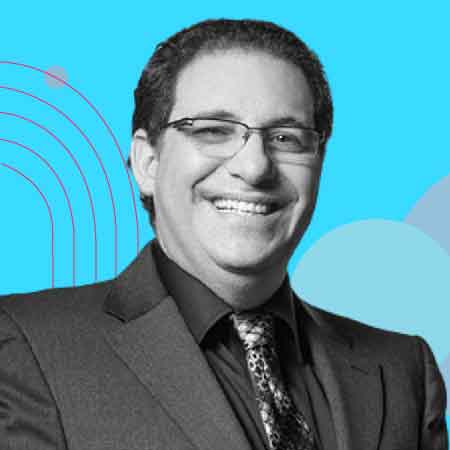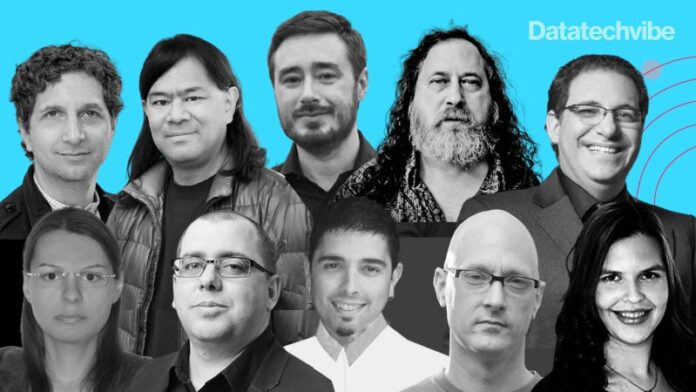As ethical hackers are becoming a crucial investment for businesses, here are our all-time top picks
It took the white hat hacker from Pangu Labs one second to hack the iPhone Pro 13 recently. The hacker managed to get the highest level of access on the jailbroken iPhone 13 Pro remotely, and he also demonstrated a data wipeout.
With advancing technologies, cyber vulnerabilities are skyrocketing and moreover, the 2020 pandemic brought an onslaught of cyberattacks worldwide. Adobe systems faced a data hack involving 2.9 million customers. The Centre for Strategic and International Studies and McAfee released a report, The Hidden Costs of Cybercrime, which revealed monetary losses to have hit $945 billion and predicted that organisations would spend $145 billion on cybersecurity services. Ethical hackers have become a crucial investment for businesses.
Here are ten most popular white hatters who have been impactful, and serve as an inspiration to several aspiring ethical hackers and security researchers worldwide.
Charlie Miller
 After his PhD in Mathematics from the University of Notre Dame, Charlie Miller worked as a computer hacker for the National Security Agency for five years. Since then, he has also worked as a consultant for the security teams of Twitter and Uber ATC. In the annual Pwn2Own competition, he won the title of Super Bowl of computer hacking four times. He was the first person to have the authority to remotely exploit the iPhone and the android phone when it was released. Featured on several publications and TV shows, the ethical hacker has also demonstrated the vulnerability in Fiat Chrysler vehicles that could be hacked and control the radio, brakes, and even the steering wheel. Currently, Miller is the security engineer, autonomous vehicle security at Cruise.
After his PhD in Mathematics from the University of Notre Dame, Charlie Miller worked as a computer hacker for the National Security Agency for five years. Since then, he has also worked as a consultant for the security teams of Twitter and Uber ATC. In the annual Pwn2Own competition, he won the title of Super Bowl of computer hacking four times. He was the first person to have the authority to remotely exploit the iPhone and the android phone when it was released. Featured on several publications and TV shows, the ethical hacker has also demonstrated the vulnerability in Fiat Chrysler vehicles that could be hacked and control the radio, brakes, and even the steering wheel. Currently, Miller is the security engineer, autonomous vehicle security at Cruise.
Dino Dai Zovi
 Hacking his way into Macbooks, Dino Dai Zovi is known for eliminating security issues in them, and also for identifying and preventing malware attacks in Apple devices. A member of the Black Hat review board, Zovi has co-authored The iOS Hacker’s Handbook (2012), The Mac Hacker’s Handbook (2009), and The Art of Software Security Testing (2006). The white hat hacker is best known in the information security community for winning the first Pwn2Owncontest at CanSecWest 2007. He is the head of security for Cash App, and previously worked as the staff security engineer at Square. He has also held security leadership roles with Endgame, Two Sigma Investments and Matasano Security.
Hacking his way into Macbooks, Dino Dai Zovi is known for eliminating security issues in them, and also for identifying and preventing malware attacks in Apple devices. A member of the Black Hat review board, Zovi has co-authored The iOS Hacker’s Handbook (2012), The Mac Hacker’s Handbook (2009), and The Art of Software Security Testing (2006). The white hat hacker is best known in the information security community for winning the first Pwn2Owncontest at CanSecWest 2007. He is the head of security for Cash App, and previously worked as the staff security engineer at Square. He has also held security leadership roles with Endgame, Two Sigma Investments and Matasano Security.
Jeff Moss
 With a degree in criminal justice, ethical hacker Jeff Moss goes by the name of Dark Tangent. He began hacking as a young man by removing copyright protection from games. After his first job as a director at the Secure Computing Corporation division, Ernst &Young, he founded the Black Hat and Defcon hacker conferences, served as the chief security officer at ICANN, and acted as an advisor to the US Department of Homeland Security. Although Moss sold Black Hat in 2005 and stepped down from ICANN in 2013, he continues to work on DefCon, and he freelances as a security consultant. The unofficial spokesperson for the hacking community was also elected to be the Commissioner at the Global Commission on the Stability of Cyberspace (GCSC) in 2017.
With a degree in criminal justice, ethical hacker Jeff Moss goes by the name of Dark Tangent. He began hacking as a young man by removing copyright protection from games. After his first job as a director at the Secure Computing Corporation division, Ernst &Young, he founded the Black Hat and Defcon hacker conferences, served as the chief security officer at ICANN, and acted as an advisor to the US Department of Homeland Security. Although Moss sold Black Hat in 2005 and stepped down from ICANN in 2013, he continues to work on DefCon, and he freelances as a security consultant. The unofficial spokesperson for the hacking community was also elected to be the Commissioner at the Global Commission on the Stability of Cyberspace (GCSC) in 2017.
Joanna Rutkowska
 Known for her research on low-level security and stealth malware, Joanna Rutkowsha is a Polish computer security expert who founded a security-focused desktop operating system, Qubes OS. In 2006, at the Black Hat conference, Rutkowsha presented the vulnerabilities in the Vista kernel and also a technique dubbed Blue Pill that used hardware virtualisation to move a running OS into a virtual machine. The white hat hacker shot to fame when she exposed numerous attacks on virtualisation systems and Intel security technologies, including the popular series of exploits against the Intel Trusted Execution Technology (TXT). Rutkowsha, who is also the founder of Invisible Things Labs, has been invited to several security conferences, such as Chaos Computer Conferences, Black Hat Briefings, HITB, RSA Conference, and Gartner IT Security Summit.
Known for her research on low-level security and stealth malware, Joanna Rutkowsha is a Polish computer security expert who founded a security-focused desktop operating system, Qubes OS. In 2006, at the Black Hat conference, Rutkowsha presented the vulnerabilities in the Vista kernel and also a technique dubbed Blue Pill that used hardware virtualisation to move a running OS into a virtual machine. The white hat hacker shot to fame when she exposed numerous attacks on virtualisation systems and Intel security technologies, including the popular series of exploits against the Intel Trusted Execution Technology (TXT). Rutkowsha, who is also the founder of Invisible Things Labs, has been invited to several security conferences, such as Chaos Computer Conferences, Black Hat Briefings, HITB, RSA Conference, and Gartner IT Security Summit.
Kevin Mitnick
Kevin Mitnick was once the FBI’s Most Wanted because he hacked into 40 major corporations just because he could. Today, he is known as a trusted security consultant for Fortune 500 companies and governments worldwide. With a 100 per cent track record of being able to penetrate any security system anywhere in the world with his Global Ghost Team, Mitnick’s security insights are highly sought after and have led him to be a commentator, security analyst, and a guest speaker on CNN, CNBC, FOX News, BBC, and 60 Minutes, to name a few. He is also the author of several books, including Art of Intrusion: The Real Story Behind the Exploits of Hackers, Intruders and Deceivers and Art of Deception: Controlling the Human Element of Security, which are mandatory readings for security professionals.
was once the FBI’s Most Wanted because he hacked into 40 major corporations just because he could. Today, he is known as a trusted security consultant for Fortune 500 companies and governments worldwide. With a 100 per cent track record of being able to penetrate any security system anywhere in the world with his Global Ghost Team, Mitnick’s security insights are highly sought after and have led him to be a commentator, security analyst, and a guest speaker on CNN, CNBC, FOX News, BBC, and 60 Minutes, to name a few. He is also the author of several books, including Art of Intrusion: The Real Story Behind the Exploits of Hackers, Intruders and Deceivers and Art of Deception: Controlling the Human Element of Security, which are mandatory readings for security professionals.
Marc Maiffret
 A former member, known as the Chameleon, of the hacking group Rhino9 and a high school dropout, Marc Maiffret realised his potential when he was raided by the FBI at the age of 17. An industry visionary, he developed some of the first vulnerability management and Web Application Firewall solutions. The ethical hacker co-founded security software company eEye Digital Security, which was credited for exposing vulnerabilities in Microsoft products such as the Code Red worm. He became the Chief Technological Officer at BeyondTrust. Maiffret has testified before the United States Congress on matters of critical infrastructure protection, and has been included in People’s Magazine’s 30 People under 30.
A former member, known as the Chameleon, of the hacking group Rhino9 and a high school dropout, Marc Maiffret realised his potential when he was raided by the FBI at the age of 17. An industry visionary, he developed some of the first vulnerability management and Web Application Firewall solutions. The ethical hacker co-founded security software company eEye Digital Security, which was credited for exposing vulnerabilities in Microsoft products such as the Code Red worm. He became the Chief Technological Officer at BeyondTrust. Maiffret has testified before the United States Congress on matters of critical infrastructure protection, and has been included in People’s Magazine’s 30 People under 30.
Mark Abene
 Once a member of hacker groups Legion of Doom and Masters of Deception, Mark Abene goes by the pseudo name Phiber Optik. He was one among first white hat hackers to publicly discuss the importance and advantages of ethical hacking as a tool for business. Some of Abene’s key services are on-site security assessment, reverse engineering, fraud investigation, and security awareness training. He is the director of cybersecurity at Rivian. Previously, he was the principal code reviewer at Identity Guard. He had also co-founded TraceVector and was a cryptographer, programmer, and contractor for Major League Baseball Advanced Media. His client list includes American Express, UBS, First USA, Ernst & Young, and KPMG.
Once a member of hacker groups Legion of Doom and Masters of Deception, Mark Abene goes by the pseudo name Phiber Optik. He was one among first white hat hackers to publicly discuss the importance and advantages of ethical hacking as a tool for business. Some of Abene’s key services are on-site security assessment, reverse engineering, fraud investigation, and security awareness training. He is the director of cybersecurity at Rivian. Previously, he was the principal code reviewer at Identity Guard. He had also co-founded TraceVector and was a cryptographer, programmer, and contractor for Major League Baseball Advanced Media. His client list includes American Express, UBS, First USA, Ernst & Young, and KPMG.
Richard Stallman
 As a programmer at MIT’s Artificial Intelligence Labs, Richard Stallman indulged in hacking activities. The programmer strongly believed in freely tweaking and sharing computer codes. Being an American free software movement activist, he founded the GNU (GNU’s not Unix) project, the free software, mass collaboration project. In 1990, Stallman received a MacArthur fellowship that helped him write various utilities for the GNU Project, such as the GNU Emacs editor, GNU compiler, and GNU debugger. It was later combined with the kernel developed by Linus Torvalds to produce the Linux operating system in 1994. The white hat hacker invented Copyleft, a legal mechanism concept that allowed programmers to redistribute a program’s code.
As a programmer at MIT’s Artificial Intelligence Labs, Richard Stallman indulged in hacking activities. The programmer strongly believed in freely tweaking and sharing computer codes. Being an American free software movement activist, he founded the GNU (GNU’s not Unix) project, the free software, mass collaboration project. In 1990, Stallman received a MacArthur fellowship that helped him write various utilities for the GNU Project, such as the GNU Emacs editor, GNU compiler, and GNU debugger. It was later combined with the kernel developed by Linus Torvalds to produce the Linux operating system in 1994. The white hat hacker invented Copyleft, a legal mechanism concept that allowed programmers to redistribute a program’s code.
Sherri Sparks
Sherri Sparks is a security researcher who made rootkits and stealth malware her pursuit. She once attacked the military service and her ethical hacking skills came to light after she exposed how operating system-independent rootkits could be used to infiltrate and compromise computer networks. She has demonstrated at RSA, Black Hat, and other summits on offensive, defensive stealth code technologies, and digital forensics. In 2007, she co-founded Clear Hat Consulting, specialising in Windows kernel and hypervisor development. Sparks holds a Bachelor’s degree in Computer Engineering, Graduate Certificate in Computer Forensics, and a Master’s degree in Computer Science from the University of Central Florida.
is a security researcher who made rootkits and stealth malware her pursuit. She once attacked the military service and her ethical hacking skills came to light after she exposed how operating system-independent rootkits could be used to infiltrate and compromise computer networks. She has demonstrated at RSA, Black Hat, and other summits on offensive, defensive stealth code technologies, and digital forensics. In 2007, she co-founded Clear Hat Consulting, specialising in Windows kernel and hypervisor development. Sparks holds a Bachelor’s degree in Computer Engineering, Graduate Certificate in Computer Forensics, and a Master’s degree in Computer Science from the University of Central Florida.
Tsutomu Shimomura
Tsutomu Shimomura shot to fame when he helped the FBI track down Kevin Mitnick in 1995. He published a book called Takedown in 2000 that centred around the pursuit. In his early life, the Japanese computer security expert was a research scientist in the physics department at the University of California at San Diego, and senior fellow at the San Diego
shot to fame when he helped the FBI track down Kevin Mitnick in 1995. He published a book called Takedown in 2000 that centred around the pursuit. In his early life, the Japanese computer security expert was a research scientist in the physics department at the University of California at San Diego, and senior fellow at the San Diego
Supercomputer Centre. He also worked for the National Security Agency, and raised awareness on the vulnerabilities of cellular phones. He testified before Congress on matters of its privacy and security issues in 1992. A computational physics research scientist, Shimomura is the CEO and founder of Neofocal, a company that develops smart LED networks.
If you liked reading this, you might like our other stories









